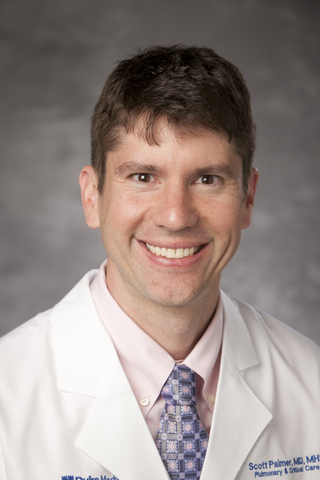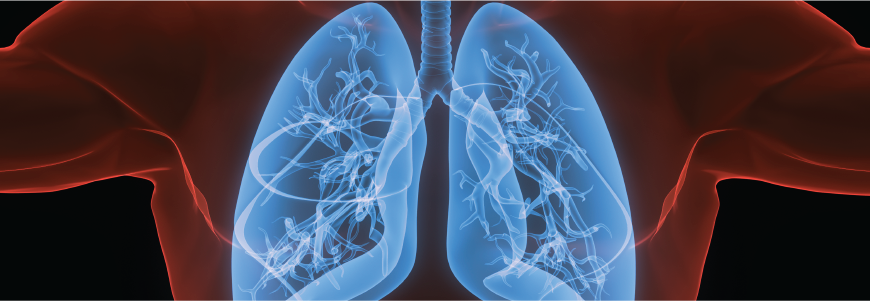A $21 million, seven-year grant from the National Institute of Allergy and Infectious Disease (NIAID) will support the search for more durable treatments for lung transplant patients, says Scott M. Palmer, MD, MHS, the transplant pulmonologist and researcher who directed the application. The scale of the award and its duration offer researchers a rare opportunity to help prevent lung transplant patients from experiencing chronic lung allograft dysfunction (CLAD).
The grant will support an interventional, multicenter clinical trial of a novel immunosuppressive strategy that will allow researchers to build on experiences in a previous Clinical Trials in Organ Transplant (CTOT ) initiative that created the Lung Transplant Clinical Trials Network (LT-CTN), a five-center consortium including Duke, UCLA, Johns Hopkins, University of Toronto, and Cleveland Clinic.
The new CTOT program will incorporate additional sites: University of Pennsylvania, Washington University in St. Louis Children’s Hospital, and Cincinnati Children’s Hospital. The clinical trial will be conducted in both adult and pediatric lung transplant recipients.
“The main barrier we face continues to be CLAD, a significant limitation in lung transplant outcomes that profoundly and negatively impacts our patients and has personally motivated me as a physician caring for lung transplant patients to move the field forward with research,” Palmer says.
The trial objective is to prevent chronic rejection, Palmer says. “We have been reviewing patterns in lung biopsies that may identify patients at higher risk of rejection and discovered new pathways of rejection in our previous CTOT studies.
“If we can personalize treatment for these individuals, we may be able to reduce the rate of CLAD to gain significant improvements in long-term survival. By preventing the rejection sequence, we could see a 10, 15, perhaps even a 20% increase in survivability.”

Working to limit inflammatory cytokines responses
Preliminary data demonstrate that post-transplant acute rejection, lymphocytic bronchiolitis, organizing pneumonia, or acute lung injury increase CLAD risk and are associated with elevations in cytokines in the lung fluid, Palmer says. Because many of these elevated cytokines share signaling through the Janus Kinase (JAK) family, blocking the relevant JAKs could be an effective strategy to limit inflammatory cytokine responses and prevent CLAD.
As Vice Chair of Research for the Duke Department of Medicine, Palmer has been involved in leading several major multicenter grants. The new NIH grant will allow Duke investigators to leverage clinical experience and research resources to build successful and impactful research programs.
“The international leadership and reputation of the Duke Lung Transplant program was a major factor in our success,” Palmer says. The Duke transplant program ranks among the top programs as a national leader in volume, wait times, and outcomes.
“This grant is a testament to the collective efforts of faculty and staff in Duke’s outstanding clinical lung transplant program. In addition, the program builds on Duke’s extensive, multifaceted research program in advanced lung disease and lung transplant involving faculty and staff from the Department of Medicine, the School of Medicine, and the Duke Clinical Research Institute,” Palmer adds.
DCRI’s proven record in coordinating and managing rigorous, large-scale, multicenter research was also an influential factor in the grant award, says Palmer, who serves as Director, Medicine Plus, for DCRI. “Our partnership with the broader group of faculty, staff, including the grants and operations teams at DCRI was an essential element of the successful application as was building our longstanding and collaborative approach to lung transplant research engaging faculty from other top academic medical centers.


